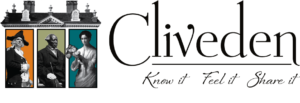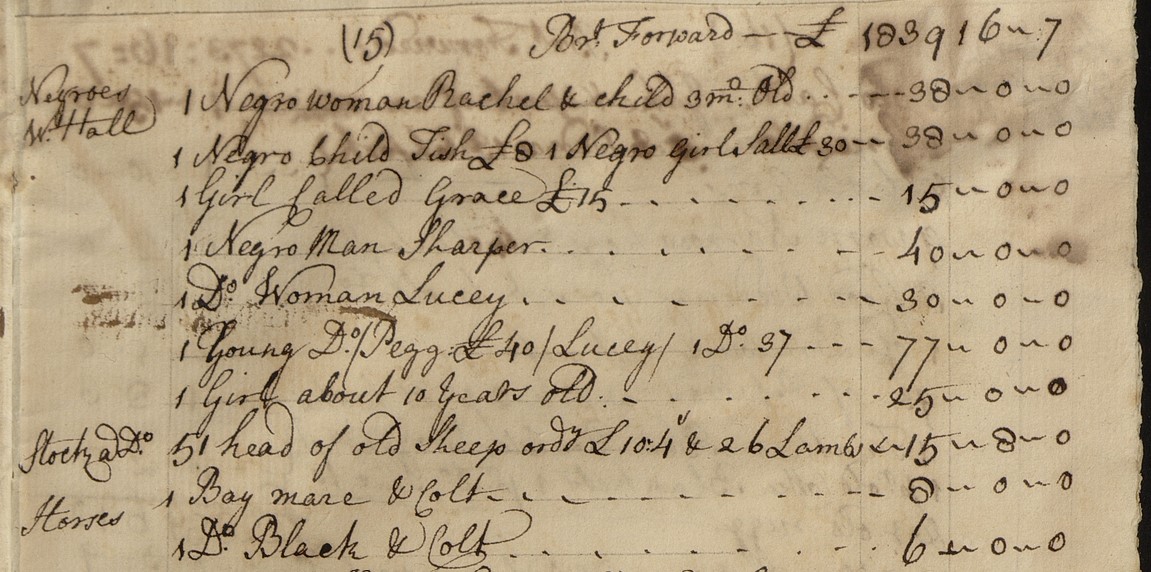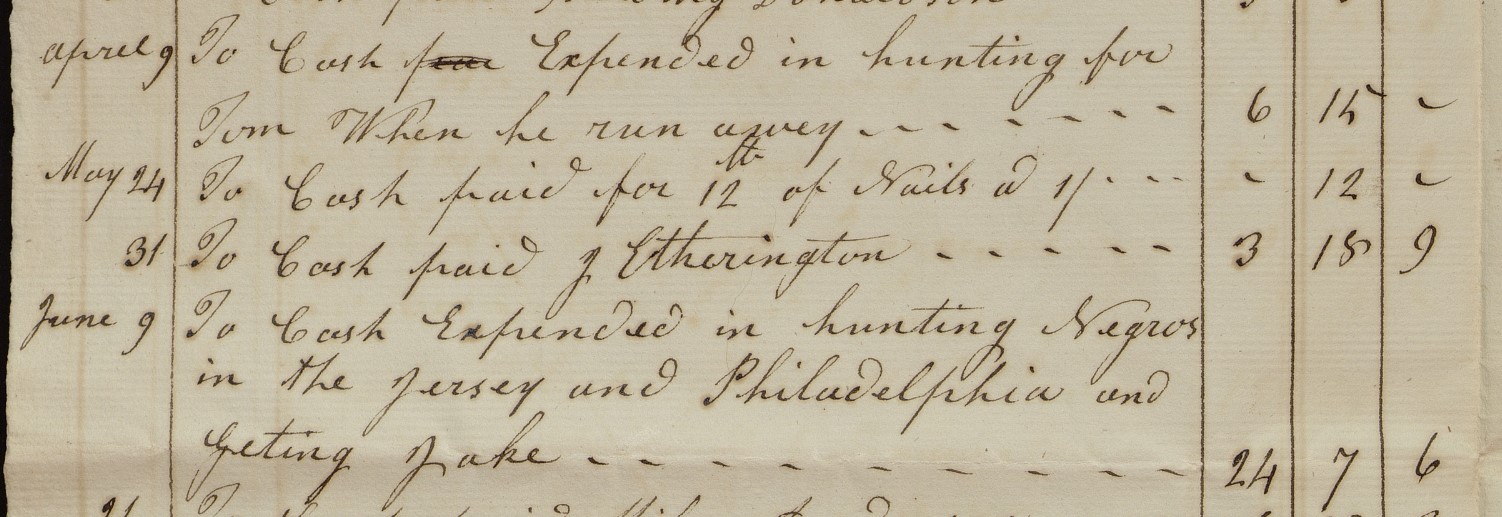Introduction
Hi! My name is Adrienne Whaley and I am the (soon-to-be-outgoing) Programming Chair for Philadelphia’s African American Genealogy Group, AAGG for short. For the past 2 years, I and other members of the group have had both the pleasure and the challenge of working alongside Cliveden of the National Trust and the Historical Society of Pennsylvania to lift up stories of the enslaved families and communities that appear in the papers of the Chew Family, owners of Cliveden for over 200 years. This was a wealthy and prominent family for many generations, not just in Philadelphia (including the once-separate community of Germantown), but also in both Delaware and Maryland. They were also slaveowners, in both urban and rural locations within these states.
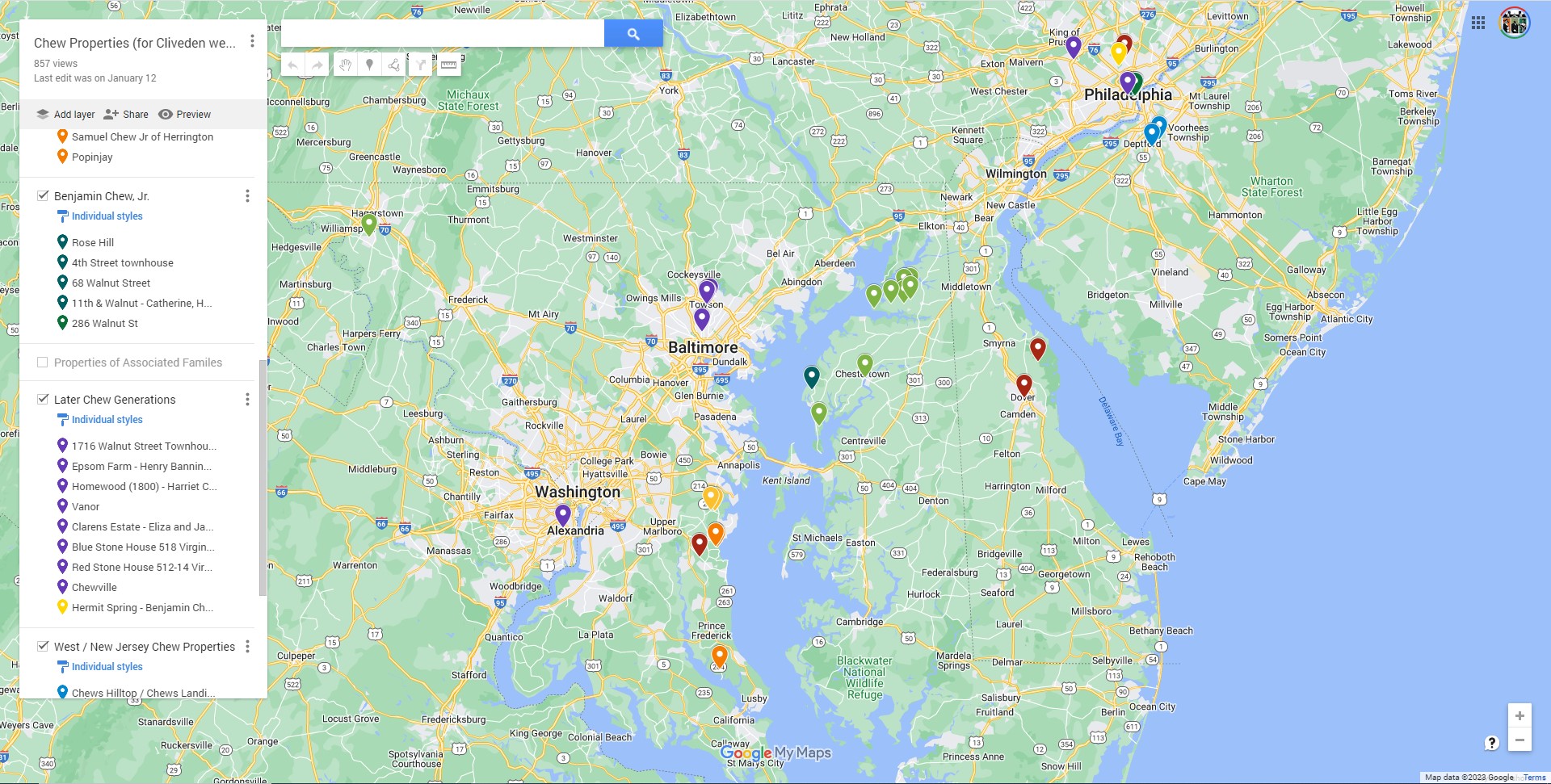
Within the more than 288 linear feet of archival collections known as the Chew Family Papers that are held at the Historical Society of Pennsylvania are tantalizing snippets of the lives of hundreds of enslaved men, women, and children who were owned by the Chews. Wills and estate records of Chew family members give us family groupings – mothers and children, and, sometimes, fathers – for these enslaved people.
A random slip of paper might include names and ages, or names and occupations on a particular farm or plantation. Wastebooks – ledgers for keeping day-to-day financial interactions – provide glimpses into medical care for the enslaved, including treatments provided and even visits from local midwives. Letters between Chew family members and their employees and associates provide intimate details on the lives of the Chew’s forced laborers; they, and other records, also provided evidence of resistance to that forced labor. Through the support of the National Trust for Historic Preservation, AAGG worked alongside Cliveden and HSP to find and make these stories available to the public under the project title Illuminating Hidden Lives: Black Stories of the Mid-Atlantic Region.
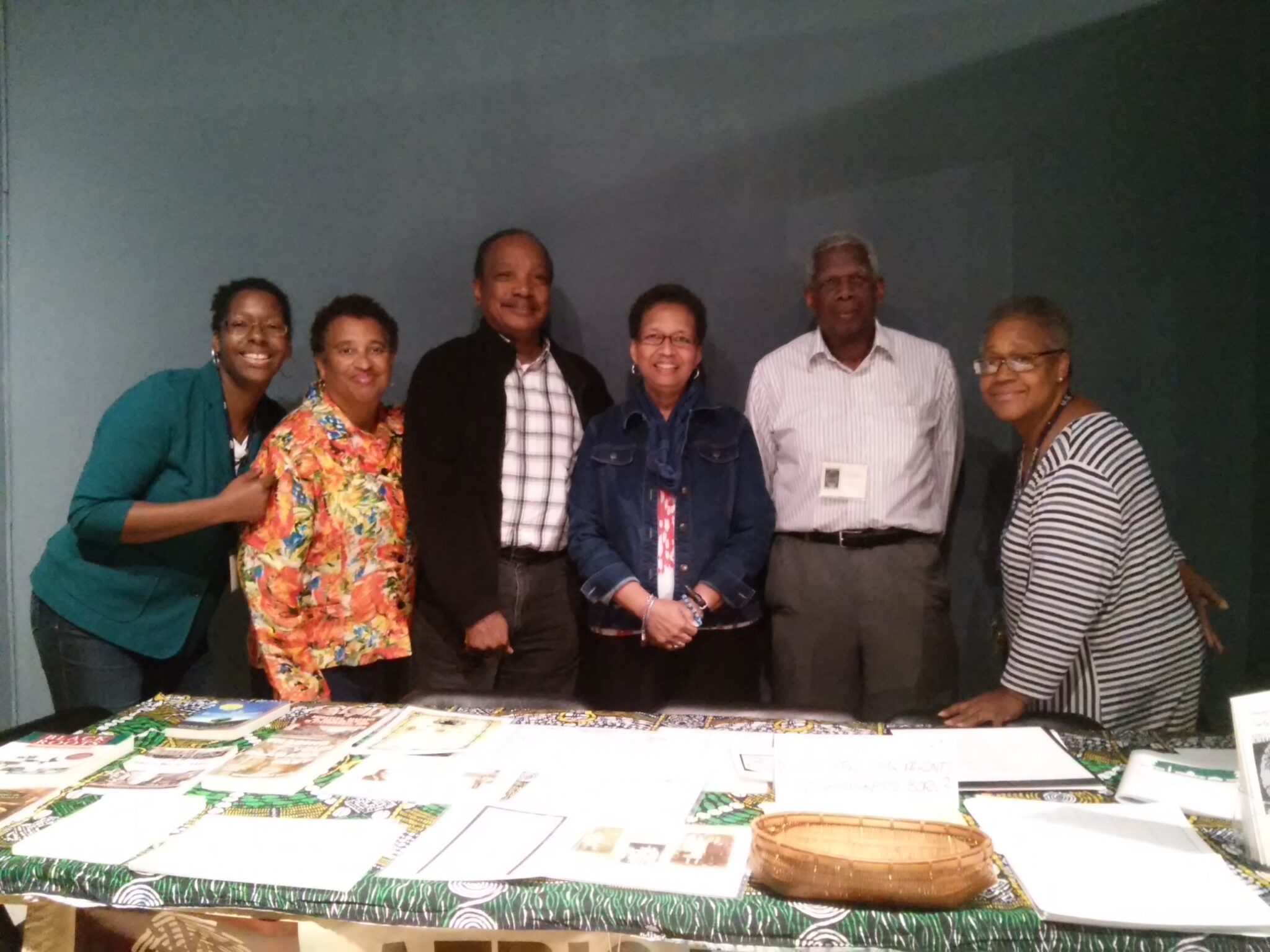
The African American Genealogy Group was founded in 1989 to assist people of African descent in finding their roots. More than 30 years later, our mission has expanded to educate, provide resources, and create a community for anyone interested in African American family history and genealogical research, including those researching their family history locally, regionally, and nationally. We have benefitted so much from the work of other genealogists who have transcribed records, scanned documents, responded to research requests, and more, and it is absolutely our pleasure to be involved in projects such as this one to give back to the genealogical community.
Our role was three-fold. First, we worked alongside Cliveden to identify promising documents within the Chew Family Papers for the Historical Society of Pennsylvania to digitize and place on the publicly-accessible Omeka site. Second, our volunteers went through as many documents as we could – over 100 at last count, some 1 sheet, single-sided, some several dozen double-sided sheets! – seeking to extract information about the enslaved families and communities owned by the Chew family. Our goal was not necessarily to build family trees, but rather to lift up the types of information found in the materials and the ways in which they could help family and community historians in their research. But, sometimes, we did get lucky! This, and “meeting” the men, women, and children of these communities, was the pleasure of this project. Through these documents, we could just begin to imagine their joys, skills, personalities, and hopes.
But, there were challenges as well – evidence of heartache, loss, and disappointment in their lives, all of which, in any case, was set against the inescapable (though not always literally) backdrop of their enslavement. Other challenges were more technical to the project: not everyone was experienced in reading 18th century handwriting, and frankly, regardless of the century, some handwriting is just illegible! Unfamiliar language and types of documents presented challenges as well. Forgive us any mistakes that remain in the project record, and submit suggested edits or corrections to our friends at HSP. Still, what an amazing project to get to work on!
We’ll share a few of our favorite stories in upcoming blog posts about the project. And we’ll include document identifiers in case you feel moved to explore the documents yourself as well. If you want to learn more, you can watch recording of our two public presentations with Cliveden and HSP at https://cliveden.org/illuminating-hidden-lives/, and if you think (or know) that you are a descendent of Cliveden or the Chew Family’s enslaved community, please send a note to Carolyn Wallace at Cliveden –[email protected] - she would LOVE to hear from you!
Upcoming Posts
Adrienne details the AAGG's work with some of the wills in the Chew Family Papers and tracing the names and locations of the enslaved men, women and children who lived and labored on the Chew family's properties.
While working with the Chew Family Papers, the AAGG discovered information about enslaved people seeking their freedom. One enslaved person who was repeatedly mentioned was a man named Jacob, who in 1803 was seeking his freedom from Samuel Chew, the half brother of Cliveden's owner, Benjamin Chew, Sr.
Illuminating Hidden Lives: Black Stories of the Mid-Atlantic Region was funded by the National Trust for Historic Preservation's Interpretation and Education Endowed Fund that was made possible by a challenge grant from the National Endowment for the Humanities.


Learn more about Illuminating Hidden Lives!
Click the button below to learn about and watch program recordings for our current project with the African American Genealogy Group and the Historical Society of Pennsylvania.
